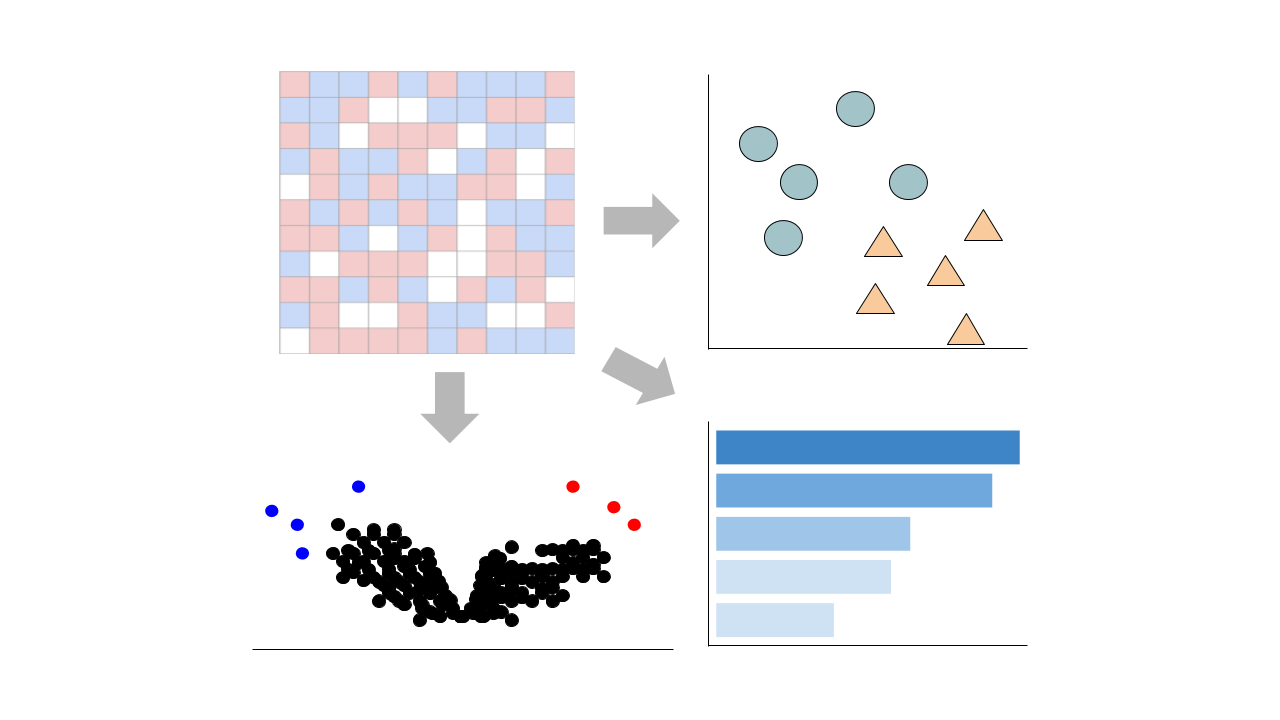 Gene counts are sourced from ARCHS4, which provides uniform alignment of GEO samples.
You can learn more about ARCHS4 and its pipeline here.
Gene counts are sourced from ARCHS4, which provides uniform alignment of GEO samples.
You can learn more about ARCHS4 and its pipeline here.
Select conditions below to toggle them from the plot:
| GROUP | CONDITION | SAMPLES |
|---|---|---|
| Maternal islet cells |
GSM4743733 GSM4743734 GSM4743735
|
|
|
GSM4743729 GSM4743730 GSM4743731 GSM4743732
|
Submission Date: Aug 24, 2020
Summary: Pancreatic islets adapt to insulin resistance of pregnancy by up regulating beta-cell proliferation and increase insulin secretion. Previously, we found that prolactin receptor (Prlr) signaling is important for this process, as heterozygous prolactin receptor-null (Prlr+/-) mice are glucose intolerant, had a lower number of beta cells and lower serum insulin levels than wild type mice during pregnancy. However, since Prlr expression is ubiquitous, to determine its beta-cell-specific effects, we generated a transgenic mouse with a floxed Prlr allele under the control of an inducible promoter, i.e. bPrlR-/- mice, allowing conditional deletion of Prlr from beta cells in adult mice. In this study, we found that beta-cell-specific Prlr reduction resulted in elevated blood glucose during pregnancy. Similar to our previous finding in mice with global Prlr reduction, beta-cell-specific Prlr loss led to a lower beta-cell mass and a lower in vivo insulin level during pregnancy. However, these islets do not have an intrinsic insulin secretion defect when tested in vitro. Interestingly, when we compared the islet gene expression profile, using islets isolated from mice with global versus beta-cell-specific Prlr reduction, we found differences in expression of genes that regulate apoptosis, synaptic vesicle function and neuronal development. Indeed, islets from pregnant Prlr+/- mice are more susceptible glucolipotoxicity than bPrlR+/- islets. These observations suggest that Prlr has both cell-autonomous and non-cell-autonomous effect on beta cells, beyond its regulation of pro-proliferative genes.
GEO Accession ID: GSE156774
PMID: 33990661
Submission Date: Aug 24, 2020
Summary: Pancreatic islets adapt to insulin resistance of pregnancy by up regulating beta-cell proliferation and increase insulin secretion. Previously, we found that prolactin receptor (Prlr) signaling is important for this process, as heterozygous prolactin receptor-null (Prlr+/-) mice are glucose intolerant, had a lower number of beta cells and lower serum insulin levels than wild type mice during pregnancy. However, since Prlr expression is ubiquitous, to determine its beta-cell-specific effects, we generated a transgenic mouse with a floxed Prlr allele under the control of an inducible promoter, i.e. bPrlR-/- mice, allowing conditional deletion of Prlr from beta cells in adult mice. In this study, we found that beta-cell-specific Prlr reduction resulted in elevated blood glucose during pregnancy. Similar to our previous finding in mice with global Prlr reduction, beta-cell-specific Prlr loss led to a lower beta-cell mass and a lower in vivo insulin level during pregnancy. However, these islets do not have an intrinsic insulin secretion defect when tested in vitro. Interestingly, when we compared the islet gene expression profile, using islets isolated from mice with global versus beta-cell-specific Prlr reduction, we found differences in expression of genes that regulate apoptosis, synaptic vesicle function and neuronal development. Indeed, islets from pregnant Prlr+/- mice are more susceptible glucolipotoxicity than bPrlR+/- islets. These observations suggest that Prlr has both cell-autonomous and non-cell-autonomous effect on beta cells, beyond its regulation of pro-proliferative genes.
GEO Accession ID: GSE156774
PMID: 33990661
Visualize Samples
 Visualizations are precomputed using the Python package scanpy on the top 5000 most variable genes.
Visualizations are precomputed using the Python package scanpy on the top 5000 most variable genes.
Precomputed Differential Gene Expression
 Differential expression signatures are automatically computed using the limma R package.
More options for differential expression are available to compute below.
Differential expression signatures are automatically computed using the limma R package.
More options for differential expression are available to compute below.
Signatures:
Select conditions:
Control Condition
Perturbation Condition
Only conditions with at least 1 replicate are available to select
 Differential expression signatures can be computed using DESeq2 or characteristic direction.
Differential expression signatures can be computed using DESeq2 or characteristic direction.
This pipeline enables you to analyze and visualize your bulk RNA sequencing datasets with an array of downstream analysis and visualization tools. The pipeline includes: PCA analysis, Clustergrammer interactive heatmap, library size analysis, differential gene expression analysis, enrichment analysis, and L1000 small molecule search.

 Chatbot
Chatbot Single Gene Queries
Single Gene Queries
 Gene Set Queries
Gene Set Queries
 Bulk Studies
Bulk Studies
 Single Cell Studies
Single Cell Studies
 Hypotheses
Hypotheses
 Resources
Resources
 Contribute
Contribute
 Downloads
Downloads About
About
 Help
Help